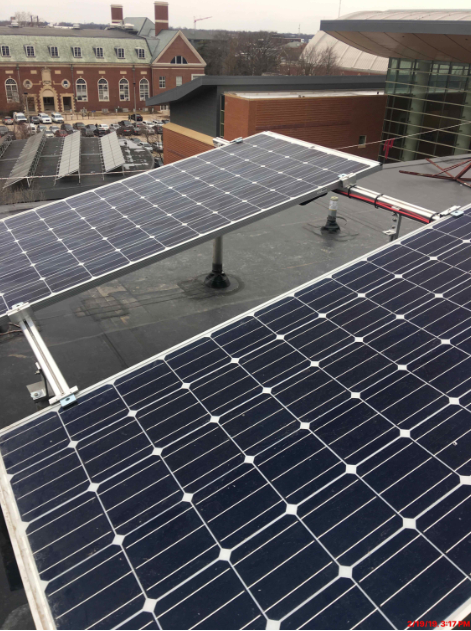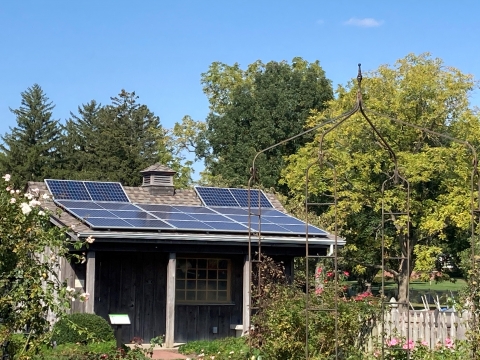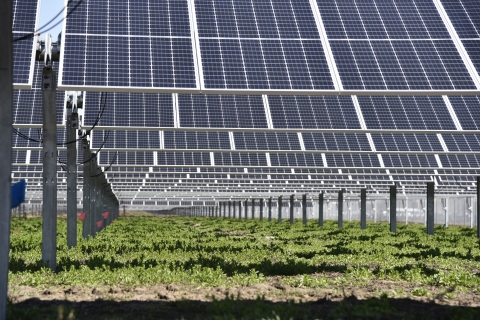You are here
Solar Power on Campus (Ongoing)
The 2015 iCAP, chapter 3, objective 2 is "Expand on-campus solar energy production. By FY20, produce at least 12,500 MWh/year, and by FY25 at least 25,000 MWh/year, from solar installations on campus property." Commonly used solar technologies are solar photovoltaics for electricity, solar thermal water heating, and passive solar design for space heating and cooling. This page describes the overarching efforts for on-campus solar production, with child projects for each effort (whether proposed, in progress, completed, or cancelled).
A variety of technologies convert sunlight to usable energy. Rooftop solar arrays can generate energy for a building without expanding the building's space footprint. They can make use of underutilized space and serve as a learning tool for students. Ground mounted solar PV panels do not need a roof strong enough to support the weight of the panels. They still need to be fastened strongly enough to prevent the wind from blowing them over. Solar on Parking Decks or Parking Lots needs to be raised above the height of the parked vehicles, and that adds cost to the installations.
Sub-projects
-
 (Completed)
(Completed) -
 (Completed)
(Completed) -
 (Proposed)
(Proposed) -
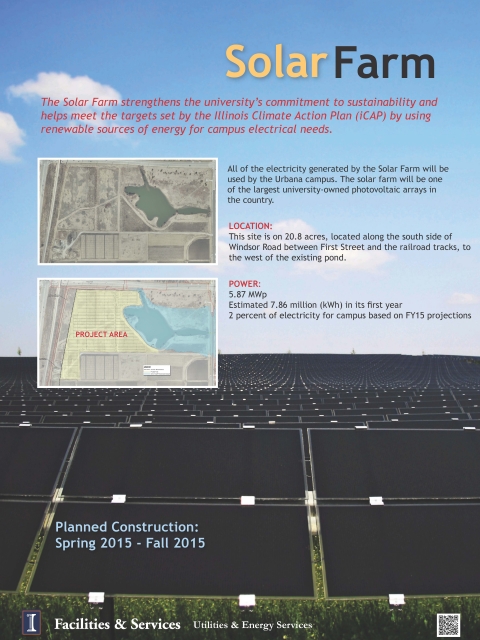 (Ongoing)
(Ongoing) -
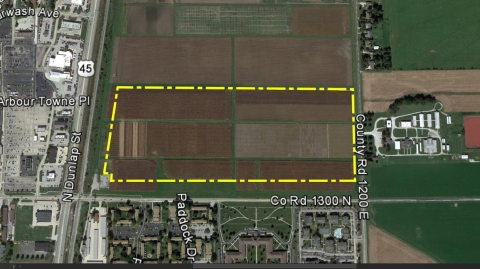 (Ongoing)
(Ongoing) -
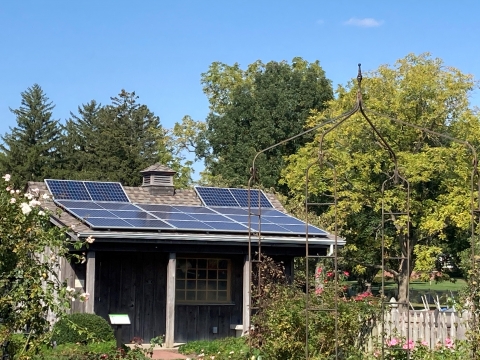 (Completed)
(Completed)
- ‹ previous
- 2 of 3
- next ›
Background
Metrics
Solar Energy Generation on Campus
Annotations
- FY 2008:
iCAP baseline year
- FY 2009:
Production started at BIF
- FY 2014:
Production started at BRC
- FY 2016:
Production started at Wassaja and Solar Farm 1.0
- FY 2019:
Production started at ECE
- FY 2021:
Production started at Solar Farm 2.0 and Conference Center
- FY 2022:
Full year of Solar Farm 2.0 production.
Recent Project Updates
-
5/1/2025In February, Paul Foote investigated the potential for rooftop solar on Krannert Art Museum. Individuals from F&S and the museum expressed interest in exploring this project.Attached is the findings for the potential solar output of the rooftop...
-
3/5/2025The Energy Team had their March meeting on Thursday, March 6th, from 2:00 - 3:00 PM. We welcomed a new member and had a hybrid meeting. The focus was on the Building Occupancy Engagement Pilot Program. We discussed the way forward and...
Project Location(s)
This map is interactive! Click (or touch) and drag to pan; scroll (or pinch) to zoom.
Themes
-
Primary Theme:
Key Objective
-
3.2 Expand On-Campus Solar Energy Production
(2015 iCAP)

